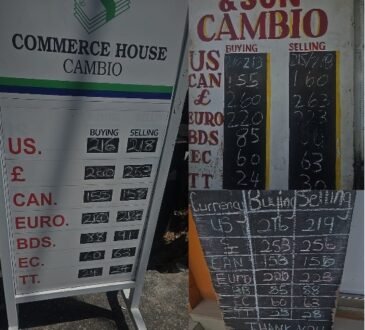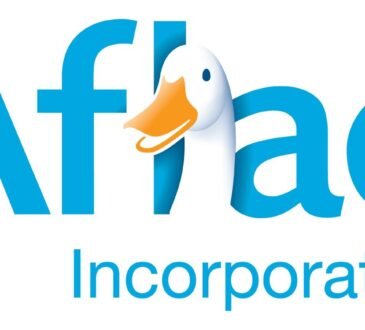The inflation that has ravaged Argentina caused prices to soar by almost 300 percent in the past year. Bills that were once usable are now literally not worth the paper they’re printed on. That leaves people like me, wanting to exchange $500 into Argentine pesos, cramming full not only the waist pouch brought for that purpose but also every pocket of my jacket on August 2.
The currency still just barely fit. With my chest pockets bulging, I feel like a Michelin man as I walk back to my hotel to sort out the cash load.

Yearly inflation figures make the price situation seem worse than it now is, though. Since Javier Milei became president in December, monthly inflation has rapidly dropped from 25 percent to stabilize around 3.5 percent. A lot of the current price increases are driven by former state subsidies that have been removed or reduced. Removing electricity subsidies, which covered up to 95 percent of its price, drives up inflation, but that was necessary for prices to eventually reflect supply and demand and to balance the state budget.
January was the first month since 2008 that the Argentine state posted a surplus; no month since has yet shown a deficit. Milei’s deregulations also seem to be showing some good effects. After rent control was lifted in January, rents dropped by 40 percent in real terms, and the supply of rental properties in Buenos Aires has increased by over 300 percent. The economy is growing more than expected, and a tax cut for big investments has led to several major investments in oil, gas, and mining being launched or planned.
Still, far from everything is rosy now in Argentina’s economy as it nears the end of the first year of Milei’s reign. Over half of the population lived in poverty during the first half of 2024, though the poverty rate has begun to decline since spring, and the Argentine central bank doesn’t have enough foreign reserves to honor the official exchange rate of 950 pesos to the dollar, leaving international companies operating in Argentina stuck with pesos they’d rather not have, and unable to make payments abroad in the native currencies of their trading partners.
Milei has critics both native and international from the left, but locally he has some from the right as well, including Roberto Cachanosky, a surprisingly popular figure for an economist. He has been a columnist for several of Argentina’s largest newspapers and has hosted his own TV show. “I know Milei personally,” Cachanosky told me during a personal meeting in a restaurant in the trendy neighborhood of Recoleta. “He promised a whole lot of things he knew he couldn’t deliver.”
Cachanosky raises a finger for each promise the president hasn’t kept.
“One! He promised to dollarize the economy immediately. I want to dollarize as much as he does, but the central bank has no dollars. Two! He promised the IMF [International Monetary Fund] would lend him money to dollarize. That wasn’t true. Three! He said he’d cut off his arm before he’d raise any taxes. But he’s raised the PAIS tax [a tax on purchasing dollars], income tax, and fuel tax, and he tried to raise export taxes too. Four! He promised to remove currency restrictions, but they’re still in place. When you export, you should get 1,500 pesos for every dollar you’re paid from abroad [the informal exchange rate is now closer to 1,150], but you only get 950, the rest the state keeps. None of this is liberal!”
Cachanosky recognizes that the fall in the budget deficit is “good, but inflation has solved the problem for him. Prices have risen more than pensions and benefits, and that’s how the state has saved money. But even that’s not enough. If Milei hadn’t raised taxes, he’d still have a deficit. He should have cut spending, not raised taxes. No libertarian raises taxes!” (Since my interview with Cachanosky in July, the PAIS tax has been lowered from 17.5 percent to 7.5 percent, and the administration has promised to remove the tax entirely by the end of the year as part of a plan to abolish currency restrictions.)
“They should have stopped adjusting pensions for inflation for those who didn’t earn their pensions themselves,” Cachanosky insists. “They should have closed even more government departments and actually shut down the ones that were downgraded to secretariats. They should have cut the benefits for the 12 million people living off the state.”
Cachanosky does think the Milei administration has done quite a few good things, and he understands Milei has to worry about winning midterm elections in 2025. “Stopping all government construction projects was absolutely right,” the Argentine economist says. “A lot of money was wasted there in corruption. The liberalization of the labor market is also a step in the right direction, although there’s much left to do. Deregulation Minister [Federico] Sturzenegger is doing a lot of good things, even if they’re often quite small. Given how few seats the ruling party has in parliament, they can’t get everything through. Milei wanted to sell all 50 state-owned companies, but he only got permission to sell five or six.”
“The problem is that the value of the peso might implode before [the next election],” Cachanosky grants. “He needs to make it to the election without any major economic problems, and keeping the currency restrictions doesn’t help.”
Beyond its issues with currency controls and an overly large welfare system, Argentina is also one of the hardest countries in the world in which to run a business. When the World Bank last calculated all the taxes an average Argentine business would have to pay if they did everything by the book, the total came to 106 percent of profits. I spoke to Gustavo Lázzari who is not only a well-known Argentine economist often seen debating on TV, but a businessman himself.
For 60 years, his family has run a factory that produces sausages, prosciutto, and other meat products. Lázzari now helms the company, which employs nearly 50 people.
“There are three types of companies in Argentina,” he explains. “The large ones that get exemptions, the small and medium-sized ones that don’t declare everything, and the completely informal ones that aren’t on any registry. None of them pay all the taxes.”
Argentina has taxes on turnover at three levels—municipal, provincial, and state. At the municipal level, smaller companies such as Lázzari’s can negotiate installment plans for their taxes. Local politicians know they won’t get any tax revenue if the company goes bankrupt, and paying later effectively creates a tax break due to the inflation—pesos paid later are worth less.
Each of the three levels has its own bureaucracy, and simple tasks such as garbage collection can require permits from all three. Larger companies need to submit around 1,500 declarations per year—a crazy burden of six forms per workday. Lázzari, for example, needs 26 different permits to transport his meat products to retailers around the country, and he has chosen to avoid doing business in some provinces because the task gets too complicated. A significant portion of Argentina’s workforce does nothing but submit useless information to the government.
The only companies that do everything completely by the rules in Argentina are large international corporations, which have managed to negotiate exemptions from both taxes and bureaucracy. Lázzari criticizes Milei’s continuing this policy of exemptions and introducing tax breaks for investments of $200 million or more. He would have preferred to see the tax system overhauled and equalized for everyone, but he recognizes such a large reregulation is difficult given Milei’s party’s weak position in parliament.
“Thirty percent of the businesses in Argentina are completely informal,” he says. “And it’s not just small shops and Uber drivers. In Buenos Aires and other major cities, you can find entire shopping malls that don’t formally exist and are only open at night.”
Argentina’s economy is essentially composed of competitive raw materials and services, so Lázzari, both economist and businessman, believes growth could really take off if the government can do three things: create a completely new tax system, eliminate most of the bureaucracy, and reform the broken labor market (for example, his company will never hire more than 50 employees because the union would then get more representatives and more power and make productivity prohibitively expensive).
Large international corporations also have their unique problems operating in Argentina, and can’t always avoid regulations and taxes the way smaller ones often can.
Andres Leonard is the head of Swedish truck manufacturer Scania’s entire Americas region; we met over a three-course lunch in the headquarters’ own restaurant. “It’s very difficult to run a business here,” he says. “Political instability leads to macroeconomic complications. For 30 years, we’ve had systematic budget deficits, first financed with loans and then by printing new money. Over and over, we’ve had runaway inflation.”
Scania follows all the rules but the automotive industry has negotiated exemptions with previous governments, and their tax burden is around 45 percent of profits. However, it’s difficult to know in advance how much tax you’ll pay—inflation makes it uncertain whether it will be 30 percent or 55 percent in real terms. Currency controls also often leave them stuck with piles of pesos they can’t exchange for foreign currencies they need, though Leonard says the currency situation has improved enough that “for new imports, we are now able to pay in dollars, and so far, it’s working well. The central bank’s dollar reserves are increasing.”
Import controls are another serious problem for companies trying to manufacture in Argentina. “To be able to do business in Argentina, we have to have a factory here. Volvo doesn’t have one, and they’ve had to leave the Argentine market. The recent Peronist governments set a quota on our trade balance, so we couldn’t import parts, even from our own factories in Sweden, unless we also exported. Every month, we negotiated directly with the government about how much we were allowed to import. We’ve often had vehicles stuck at the border, waiting to enter the country and be sold.”
Leonard is pleased with Milei’s government overall, but sees the need for more reform ahead. “The most important thing is labor laws. Hiring has to become less risky. The strong employment protections doesn’t help anyone; they just force people into the black market because they can’t get formal jobs. Additionally, taxes must be drastically lowered, and foreign trade needs to function. The last two years of Milei’s term could be very good for the economy, and then he will be re-elected.”





